Awesome Vietnamese exercises for elementary school students
In a group with many parents, an article was shared about pictures of students' exercises filling in the blanks of idioms and proverbs.
Although these are familiar sentences, used so often that adults know them by heart, to children they are "like blank sheets of paper". Therefore, when teachers ask them to fill in the blanks with complete sentences, elementary school students create many sentences that make everyone laugh.
Specifically, "Lightning flashes , cock crows"; "Strong legs, strong kicks"; "Humans are the foundation of a career"; "A small fortune is a treasure"; "Knives close together"; "Bury vegetables and cut trees", "White as a peeled chicken"; "Remember the one who planted the fruit when eating".....

"Lightning flashes , rooster crows "Cock-a-doodle-doo".

"Strong legs, strong kicks".

"Lightning flashes, when the rooster crows, the sky is bright"; "Hard-legged, playing soccer".

"Man is the head of the business"; "Little treasure digs the heart".

"Drifting duckweed and buried clouds"; "Learning to eat, learning to speak, learning to wrap, learning to imitate".

"Drifting duckweed and white clouds"; "Learning to eat, learning to speak, learning to wrap, learning by rote".

"Knives to the bone".
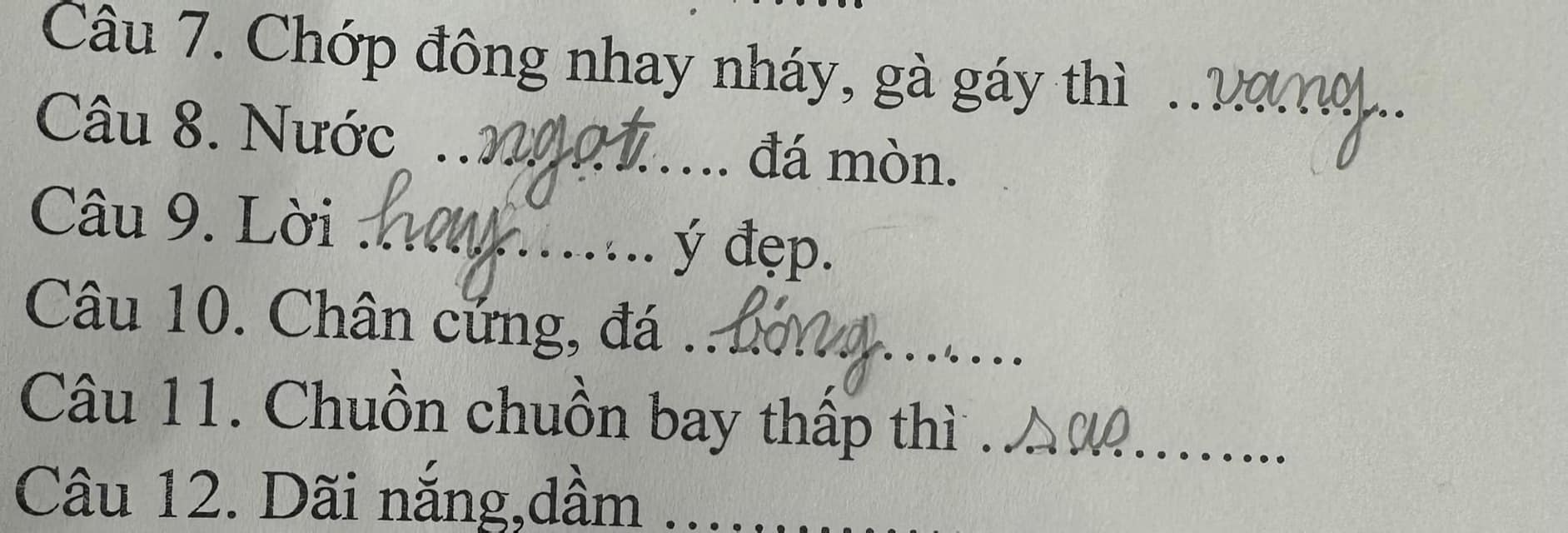
"Fresh water wears away stone"; "So what if dragonflies fly low".

"Bury vegetables and cut trees", "White as a peeled chicken"; "Eat the fruit, remember the one who planted it".

"Hungry but clean, armpits must be fragrant"; "Mountains make country know"; "Body of copper, buffalo of iron".
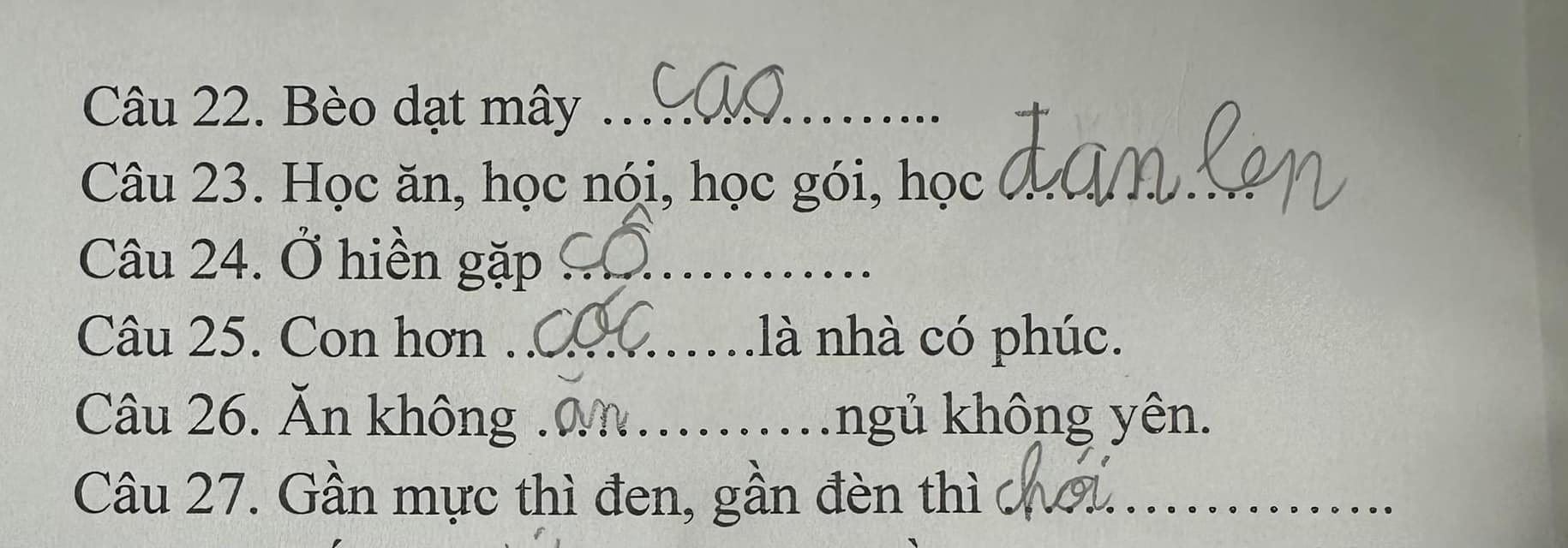
"Learn to eat, learn to speak, learn to wrap, learn to knit"; "Good people will be rewarded"; "Near ink, you will be blackened, near the light, you will be dazzled".
How can students learn Vietnamese well?
In front of the funny and adorable images of students that made parents laugh so hard they "forgot the original", talking to the reporter of Dan Viet newspaper, Ms. Nguyen Thi Ngan Ha, a teacher at Duong Xa Primary School, Gia Lam District, Hanoi shared: " The problem of students writing idioms and proverbs incorrectly is one of the situations that happens quite often in Vietnamese lessons.
However, if they are students in grades 1-3, it is because they rarely hear or use words in communication with adults, so they cannot remember. They only focus on the word before the (...) mark and then combine other words to create a word that suits their feelings. Therefore, they choose the word to create and write it incorrectly.
In fact, each chapter and each topic uses idioms and proverbs in lessons of the subjects: Vietnamese, Ethics. However, due to the ability of young children to remember quickly but also forget immediately. Therefore, if I encounter a case where a student in class makes a mistake when filling in idioms and proverbs, I personally will comment that it is necessary to review the lessons learned or point out which lesson has that sentence.
If they are 4th or 5th grade students, I will let them read the idioms and proverbs again, learn their meanings and give examples of how they are used so they can remember them better.
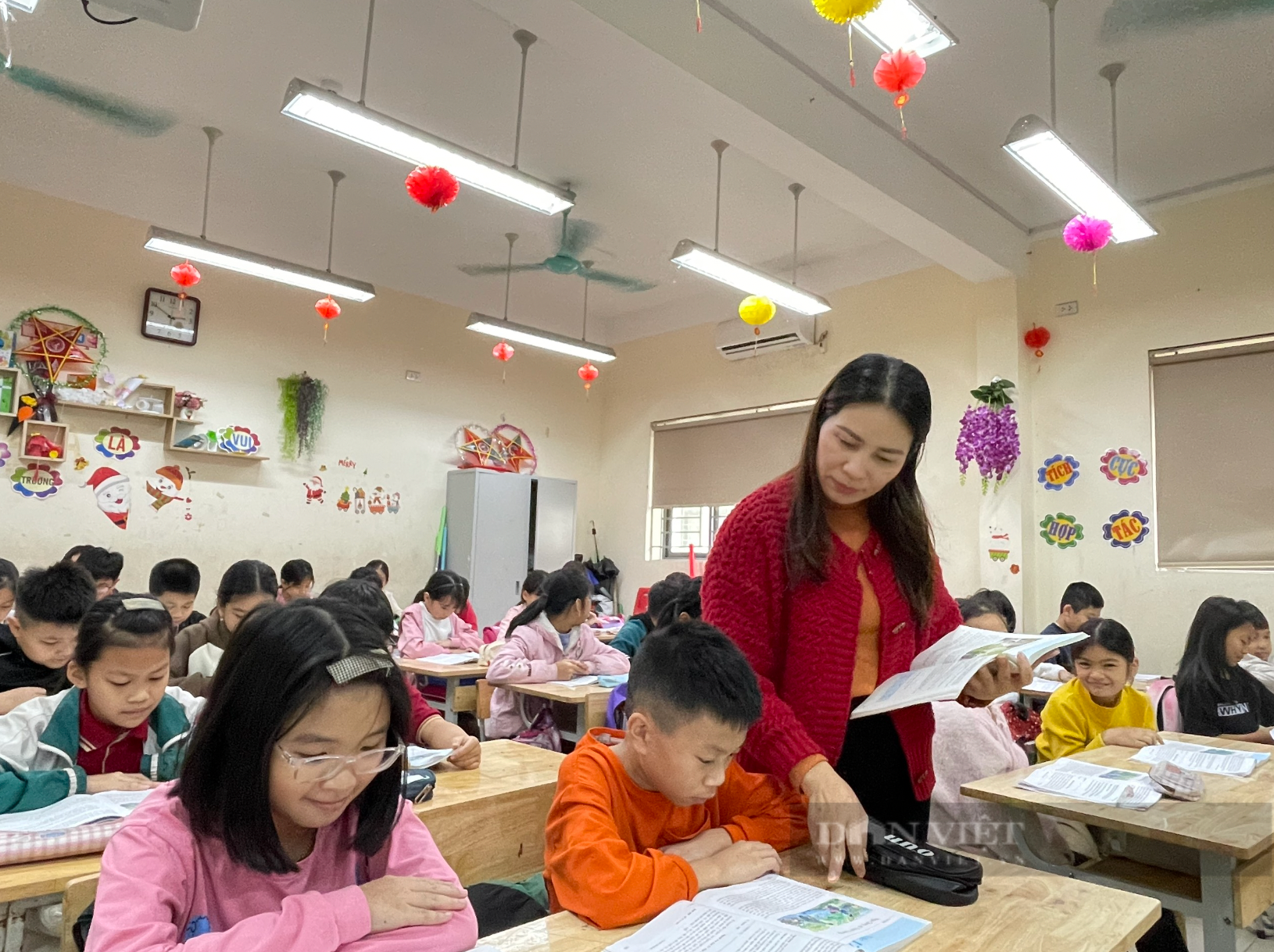
Ms. Ngan Ha and students of Duong Xa Primary School. Photo: NVCC
According to Ms. Ha: " In fact, it is not difficult for students to learn Vietnamese well, but it is not easy because the current situation of students is limited vocabulary, lazy to think, passively relying on teachers, parents, copying models... And to change this requires time and passion for learning Vietnamese, self-improvement to supplement vocabulary, sentences, ideas through reading books, through good articles and observing things meticulously and in detail, creativity, imagination when writing sentences...
To do this, students must first know many words, understand their meanings, create appropriate sentences with images, and know how to combine words into paragraphs. They proactively acquire knowledge about Vietnamese through channels such as teachers, friends, grandparents, parents, books, radio, newspapers, the Internet, or corrections in communication by adults when they use the wrong words or sentences...
Gradually, the children will get used to it, will absorb it and will remember it to use it in writing and speaking more fluently. The most important thing is to inspire them to love learning Vietnamese. Those who love learning will find materials and understand the lessons themselves. From understanding the lessons, the children will apply it to do the exercises according to their abilities."
Ms. Ngan Ha further advised: "If you want your children to study well, besides teachers, parents are the ones who help them the most. However, you have to be patient because learning Vietnamese well and being good at Literature is not something that can be understood and written in a day or two, but requires years of practice and cultivation. Parents only need to support their children with maximum study materials. When your children ask for homework, avoid reading for them to copy or do their homework for them, but should rely on the teacher's suggestions or the parents' understanding to guide their children to write meaningful sentences.
If it is about explaining words, ask your child to look them up in the dictionary. If you see that the sentence is not good, suggest that your child develop it further by adding appropriate words or phrases. In communication, parents often talk and correct their children when they see that they are using words or sentences incorrectly. There are many ways to help children develop their own vocabulary. Or like new idioms and proverbs, parents can provide and explain them to their children many times so that they can remember them...".
Source: https://danviet.vn/cuoi-dau-bung-bai-tap-tieng-viet-cua-hoc-sinh-tieu-hoc-cua-it-long-dao-con-nguoi-la-dau-co-nghiep-20241023153618496.htm














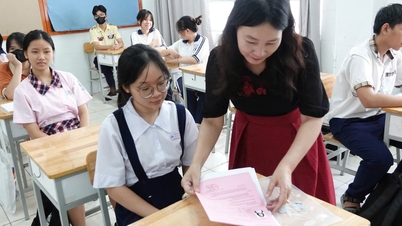












































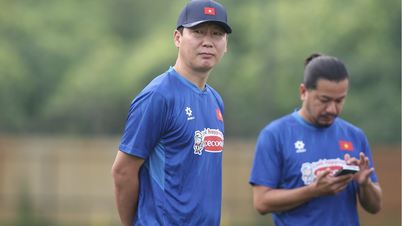





































Comment (0)